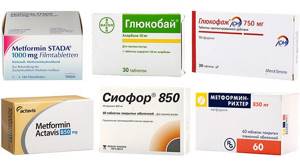Everyone who has problems with excess weight has probably thought at least once: “How to eat and not get fat?” The question is especially relevant for those who are losing weight not only through diet, but also through sports. They find themselves caught in a vice. On the one hand, you need to create a calorie deficit using carbohydrates in order to start the fat burning process. On the other hand, without them, a lack of energy is detected, which reduces the effectiveness of training. In the 80s last century, a drug was developed that solves this dilemma - a carbohydrate blocker. True, it was originally intended not for sports nutrition, but for the treatment of diabetes.
Review your basic daily calorie limit
When you lose weight, the hormones that control your energy intake cause your body's overall metabolism to decrease.
Typically, it slows down by 40 calories per day for every pound of weight you lose. To lose weight, you need to burn more calories than you consume. Since you're burning less now than before, you'll have to make some adjustments to your menu.
You can calculate the difference in how your metabolism works by multiplying your weight loss by 40 calories. You will likely need to burn about 100 to 200 calories per day to continue losing weight at the same rate as before.
Best Carb Blocker
There are not so many carbohydrate blockers in the world - in each country they are called differently, but the purpose of taking the drug remains the same - either to control blood sugar levels, or as a means of weight loss and body shaping. Each manufacturer touts their weight loss pills, proving that their drug is the best carbohydrate blocker. You cannot blindly believe advertising slogans and beautiful pictures - only an experienced nutritionist can determine which carbohydrate blocker is the best in a particular individual case, and whether it will be effective at all.
Keep a food and exercise diary
Source here and below: Pexels
As you approach your ideal weight, you can begin to take a more relaxed approach to your diet and the amount of exercise per week. But in fact, you must be even more vigilant than before.
Be responsible by keeping a food diary or using a calorie counting app. Compare the amount you consume with the amount you expend. Be as honest and accurate as possible.
Action

There are many discrepancies and myths about how exactly carbohydrate blockers act in the body, and there are debates. Some call them a miracle of the 21st century, others call them just another profanity, of which there is an overabundance on the modern market of dietary supplements and sports nutrition.
Once in the gastrointestinal tract, the drug affects not the carbohydrates themselves, but the enzymes that break them down. Being undigested, they pass from the small intestine to the large intestine and are excreted without being absorbed into the blood. As a result, the glucose concentration remains at the same level, the body does not receive extra calories and has nothing to store in reserve. This action allows the use of carbohydrate blockers in medicine - to reduce blood sugar concentrations in diabetics, and in dietetics and sports nutrition - for weight loss.
But why are there so many questions about their effectiveness?
Question 1 - about simple and complex carbohydrates
Carbohydrates are simple and complex. The former are quickly absorbed into the bloodstream, causing a sharp jump in sugar. Some of it is used to generate energy, some is stored in reserve, leading to excess weight. The latter are digested slowly, breaking down in the gastrointestinal tract over several hours and providing a portioned supply of glucose.
Some manufacturers advertise their drug as a blocker of simple carbohydrates. It is not surprising that the question arises: do they split? After all, they are named so because they are absorbed from the stomach directly into the blood. Based on this, many conclude: it’s a deception and another trap for losing weight! In reality, everything is not so obvious. They are still subject to decomposition into glucose, and this process begins in the oral cavity under the influence of the enzyme amylase. And it is precisely its functioning that is suspended while taking such a remedy.
Here the question should be asked differently: if the manufacturer positions its drug as a blocker of fast carbohydrates, does this mean that it has no effect on slow carbohydrates? This is where the deception lies: the product acts on an enzyme that equally breaks down both. So be prepared for the fact that the body will lose most of both simple (harmful, contributing to a sharp jump in sugar and weight gain) and complex (healthy, improves digestion and satisfies hunger for a long time) carbohydrates.
Question 2 - about energy for athletes
If blockers interfere with the breakdown and absorption of carbohydrates, then how will a person get the necessary boost of energy? Yes, the benefits for losing weight are obvious - a calorie deficit still forms. And even with diabetes, the benefits of such drugs are beyond doubt, since there is no sharp jump in blood sugar. But how did they get into sports nutrition and what are their positive results here?
Blockers are not such powerful and effective means to cope with all the carbohydrates that enter the digestive tract. According to unconfirmed data, they stop the breakdown of approximately ¾ of the total volume of carbohydrate food that enters the stomach. The remaining ¼ is digested and enters the bloodstream. Since this is a small amount, everything is spent precisely on energy production, and is not used as a reserve for the formation of fat depots.
So you need to approach such drugs wisely. Firstly, there are no simple carbohydrate blockers. Secondly, you should not discount them as representatives of sports nutrition - they still have benefits.
Adjust your nutrient ratios
Low-calorie diets are more effective than others, but they can be quite difficult to follow. In addition, often with this type of nutrition the body lacks the necessary substances.
Adjust your diet so that you consume more protein (most of it from lean sources) and fewer carbohydrates. Try eating nuts, lentil soup, chickpeas, whole wheat pasta and vegetables.
Harm
Calorie blockers as sports supplements have few contraindications and, when used correctly, rarely cause any side effects. At least that's what the manufacturers say. For pharmaceutical drugs that have the property of preventing the breakdown of carbohydrates, these lists are much more impressive. In any case, before taking such products, it is advisable to consult with relevant specialists and carefully study the instructions.
Possible contraindications:
- individual intolerance;
- lactic acidosis;
- alcoholism;
- lung diseases;
- exacerbation of infections with increased temperature;
- lactation, pregnancy;
- children and old age;
- heart, kidney and liver failure;
- ketoacidosis;
- Gastrointestinal diseases: malabsorption syndrome, hernia, ulcer.
Possible side effects:
- allergic reactions;
- headache;
- men may experience a decrease in testosterone levels;
- flatulence, diarrhea, colic and other symptoms of indigestion;
- lactic acidosis;
- anemia;
- swelling.

One of the most dangerous consequences of actively taking blockers is the removal of large quantities of vitamin D and calcium from the body. Cholecalciferol deficiency can cause osteoporosis, rheumatoid arthritis, and often leads to depression and increased blood cholesterol levels. Hypocalcemia is fraught primarily with heart failure and other cardiac problems.
Please also take into account the fact that after stopping the drug, rapid weight gain most often occurs.
Another danger when taking blockers: knowing that the drug will reduce the absorption of carbohydrates, many people relax and allow themselves to eat large amounts of high-calorie food at one time. The result is no effect.
Names of obesity pills
Each category of anti-obesity drugs includes several drugs. They have some differences in composition and principle of action. The list of drug names includes:
- anorexigenic - Goldline, Meridia, Reduxin, Lindaxa, Izolipan, Sibutramine, Goldline, Dietressa, Lindaxa;
- carbohydrate blockers - Metformin, Glucobay, Phaseolamine, Glucophage;
- fat blockers - Orlistat, Xenical, Orsoten;
- accelerating metabolism - L-carnitine (levocarnitine), Tavamin, Caffeine sodium benzoate, Succinic acid;
- Dietary supplements – Chitosan, Zhuidemen, Ideal, Carniton, Turboslim.
Ratings
Sports nutrition
It's hard to name the best carbohydrate blocker. Firstly, this is a new drug on the sports nutrition market, which is still gaining a place in this niche. In this regard, the range is not as wide as we would like. Secondly, there are still too many discussions around them about the degree of effectiveness, safety, and feasibility of use. Some companies are even discontinuing their products. Thus, the American company BSN stopped producing Cheaters Relief, although it was believed that it had practically no competitors.

Dietary supplements carbohydrate blockers
TOP 9 best:
- Mimic with cassia. Magnum. Canada. $33 for 60 capsules.
- SucoBloc with beans, garcinia and chicory. Gaiapharma. Norway. $30 for 180 tablets.
- Phaseolamin (Phaseolamine) - bean extract. LA Farmacia Natural. Spain. $29 for 90 capsules.
- Carb Blocker with beans and fenugreek. Weider. USA. $23 for 120 capsules.
- Calorie blocker Phase 2 with bean extract. Diode. Russia. $16 for 40 tablets.
- Carb Intercept with White Bean Extract. Natrol (Natrol). USA. $16 for 60 capsules.
- White Kidney Bean Extract with white beans. MyProtein. Great Britain. $15 for 90 capsules.
- Carb Bloc with White Beans. Ultimate Nutrition. USA. $8 for 90 capsules.
- Calorie blocker with beans, garcinia, chitosan. Turboslim. Russia. $7 for 40 tablets.
Japanese carbohydrate blockers can be included in a separate rating, as they have a number of features. Firstly, many use salacia and gymnema, which is not typical for Western brands. Secondly, they are used primarily in dietetics for weight loss and are not advertised as sports nutrition products.
- Super calorie blocker with chestnut, white beans and salacia. D.N.C. Japan. $44 for 90 tablets.
- White bean diet. CarinA. Japan. $29 for 90 tablets.
- Limit Calorie Tea with mulberries, mulberries, white beans. Fancl. Japan. $27 for 30 bags.
- Limit Calorie with green tea, mulberry, gymnema, white beans. Fancl. Japan. $25 for 30 tablets.
- Gymnema Sylvestre with gymnema. D.N.C. Japan. $23 for 90 tablets.
The disadvantage of Japanese carbohydrate blockers is that they must be ordered online, since they are not sold in specialized stores and pharmacies.
Pharmacy drugs
Some do not trust the modern market of dietary supplements: the composition is dubious, there are not always quality and safety certificates, unproven effectiveness and other reasons to avoid them. As a result, they go to the pharmacy to buy carbohydrate blockers, believing that they will certainly be useful and will not cause harm. But this is not true at all.
Firstly, in their essence, pharmacological drugs are not carbohydrate blockers, but antidiabetic drugs. Secondly, their use requires a doctor’s permission. Thirdly, they have many more side effects than conventional dietary supplements, because they are more powerful in their effect on the body.

Pharmacy antidiabetic drugs with the property of blocking carbohydrates
Pharmacy medications are recommended for use by those who are at risk of developing diabetes, diagnosed with obesity, and who cannot give up simple carbohydrates on their own.
- Metformin Stada. Stada. Russia. $23 for 180 capsules.
- Metformin. Actavis. Iceland. $19 for 60 tablets.
- Glucophage Long. Merck Serono. France. $6 for 30 tablets.
- Glucobay. Bayer Pharma. Germany. $6 for 30 tablets.
- Siofor. Berlin-Chemie. Germany. $6 for 60 tablets.
- Metformin-Richter. Gedeon Richter Ltd. Hungary. $3 for 60 tablets.
- Metformin Canon. Canonfarm Production. Russia. $2 for 30 tablets.
- Metformin Zentiva. Zentiva. Czech Republic. $2 for 60 tablets.
- Metformin. Zanza. Italy. $2 for 84 tablets.
- Metformin-Teva. Teva. Israel. $2 for 30 tablets.
Carbohydrate blockers are very popular in sports nutrition. However, the attitude towards them is rather ambiguous, their action raises many questions, and their effectiveness is not confirmed by everyone. Therefore, whether to take a step in their direction when losing weight and intense training or not is up to everyone to decide for themselves.
How do diet pills work?
The main goal of all anti-obesity drugs is weight loss, but this is achieved in different ways. Depending on the principle of action, medications for weight loss are divided into the following groups:
- Anorexics. They affect the satiety center in the brain and reduce appetite.
- Blocking the absorption of fats and carbohydrates. These nutrients are not allowed to be absorbed, thereby reducing the calorie content of meals.
- Accelerating metabolism. Eliminate the main problem of obesity – slow metabolism.
- Biologically active additives. This includes parapharmaceuticals and nutraceuticals. They are additional sources of energy. Some change metabolism, regulate the nervous system and organ activity.
Price
Drug treatment for obesity can have different costs depending on the price of the drugs prescribed by the doctor. It is determined by the release form, the active component, the number of tablets in the package and the place of purchase. Some products are inexpensive, others are more expensive. The specific prices at which you can order and buy the above medications in the online store are shown in the table:
| Name | Number of tablets, pieces | Price in the pharmacy catalog, rubles |
| Goldline | 90 | 4411 |
| Meridia | 28 | 2500 |
| Reduxin | 30 | 1862 |
| Orsoten | 21 | 712 |
| Lipase | 80 | 176 |
| Chitosan | 100 | 220 |
| Lindaxa | 30 | 767 |
| Sibutramine | 30 | 975 |
| Glucobay | 30 | 471 |
| Acarbose | 30 | 466 |
| Rimonabant | 30 | 359 |
What is obesity
In medicine, obesity is the excessive formation and deposition of adipose tissue in the body of a woman or man.
This is a chronic metabolic disease. The spread of pathology is facilitated by demographic, socio-cultural, biological and behavioral factors. Human body weight is regulated neurohumorally. The feeling of hunger is caused by the hypothalamus. Its supraoptic nuclei contain a center for regulating metabolism, to which the adrenal glands, thyroid and pancreas, and the autonomic system are responsible. This pathology is divided into 4 degrees. A unified classification of forms of obesity still does not exist, but the following types can be roughly distinguished:
- primary – accounts for 75% of cases;
- secondary, or symptomatic – develops against the background of other diseases;
- local - lipomatosis, Derkum's syndrome, lipophilic nutritional dystrophy.
Anorexigenic drugs without prescriptions
Otherwise, these drugs are also called anorectics. Their effect is to reduce appetite. Such medications are recommended only for the first time, to make the diet easier to tolerate and begin to lose weight. The following medications will help you learn to eat healthy foods in small portions:
- Dietrin;
- Phenamine;
- Minifage;
- Liprina;
- Garcinia forte;
- Lindax;
- Goldline;
- Belvik.










